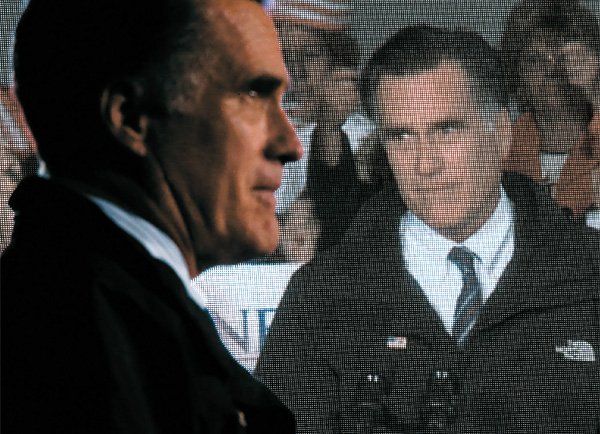
Partisan politics is starting to look like a cult, and after this presidential election, Republicans will need some serious deprogramming.
The overheated anti-Obama echo chamber on the far right led to a fact-free fanaticism, inspiring otherwise educated folks to ignore most polls in favor of feel-good tall tales about "Mitt-mentum" going into Election Day.
Among those caught up in the fever swamp was the architect of George W. Bush's two White House wins, Karl Rove, seen awkwardly on air arguing with Fox News's own pollsters about whether the election was over. The respected co-author of The Almanac of American Politics, Michael Barone, predicted a Romney landslide, as did the poet laureate of conservative columnists, George Will. And these were the adults at the conservative table.
Conspiracy entrepreneurs always peddle special knowledge, and just days before the election Dick Morris was still shilling on Fox, saying, "Romney will win this election by 5 to 10 points in the popular vote. And will carry more than 300 electoral votes."
In the end, of course, Romney lost the popular vote.
There were plenty of poll aggregators and statisticians (most notably Nate Silver) who rightly predicted the election outcome. So how could so many supposed professionals get it so spectacularly wrong?
"We've seen the rise of polling firms nobody ever heard of, giving us results that nobody should believe," says Democratic strategist and Daily Beast columnist Bob Shrum.
One museum piece of this election is unskewedpolls.com—the website where sample sizes of polls were adjusted to magically put Romney in the lead during his dreary summer campaign. It was an extension of the insidious idea that the mainstream media taint all stats and facts with their own liberal bias, so that only explicitly partisan news sources can be considered truly "fair and balanced."
Sen. Daniel Patrick Moynihan once warned: "Everyone is entitled to his own opinion, but not his own facts." But politicians and citizens now enter policy debates armed with their own facts—and finding common ground becomes even more difficult.
Believing in their own convenient facts has hurt Republicans as well as the republic. Blinded by the landslide powered by the Tea Party two years ago, the GOP confused the midterm electorate—narrow and ideologically intense—with the broader, more representative portion of the American public who turns out to vote in presidential contests.
Trying to apply the 2010 playbook to 2012 didn't work, and unhinged anti-Obama intensity only alienated moderate voters who ended up supporting the president's reelection by a 16-point margin.
Rejected by much of the more levelheaded center, the party's isolation was amplified by the demographic fault lines now shaping our political landscape. Young Americans, women under 50, African-Americans, and Hispanics overwhelmingly voted for Obama. White men and senior citizens, meanwhile, formed the core of Mitt Romney's support.
"Too many Republicans are in stage I of the five phases of grief: denial, anger, bargaining, depression, and acceptance," says former Bush strategist and Daily Beast columnist Mark McKinnon. "I just hope we get to No. 5 at some point soon."
To accept and understand what happened in this presidential election, Republicans will need to face what their parallel political universe has wrought. In the past two election cycles, the elevation of far-right candidates—including Todd Akin and Richard Mourdock—has cost the Republicans at least five Senate seats they would have otherwise won. The deeper costs come from the insular arguments and the elevation of figures like Ayn Rand into an alternative canon.
Ironically, a movement that prides itself on individualism ends up promoting groupthink. To avoid the appearance of a party left talking to itself in the corner, Republicans will need to reach out beyond their base and rebuild Reagan's fabled functional big tent—remembering that the essence of evangelism is winning converts, not simply preaching to the choir.
Uncommon Knowledge
Newsweek is committed to challenging conventional wisdom and finding connections in the search for common ground.
Newsweek is committed to challenging conventional wisdom and finding connections in the search for common ground.





